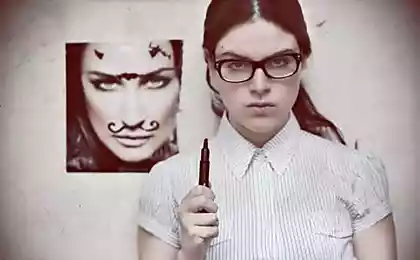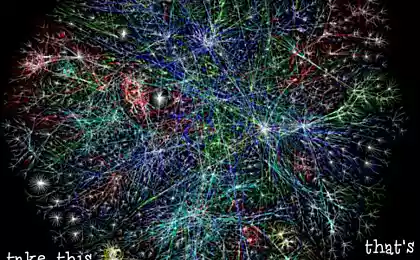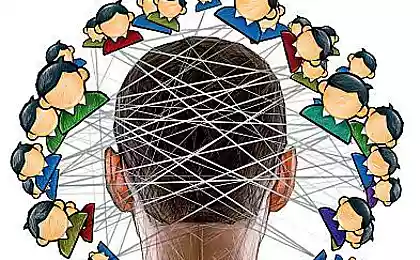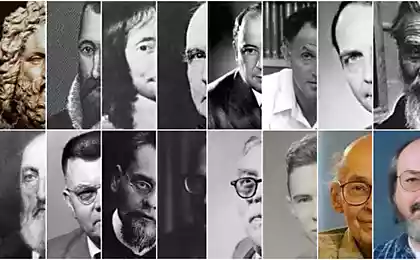241
What can and should not be posted on social networks, the opinion of the priest
My mother used to say to me from my childhood, “Happiness loves silence.” She also liked to say that you can not take the garbage out of the house. Therefore, I was strictly forbidden to share with other children in the yard what is happening in our family. I remember telling my girlfriends that Mom and Dad had a big fight. When the neighbors found out about this, I flew on the first day. I am no longer a child and I understand my mother. There were no social networks a few decades ago. It's common these days to share everything! There's even a social media search for a face picture, you know?

This is how you take a picture of a person on the street, and access to the data is ready. These days, even an amateur can easily find all the necessary information, you do not need to be a 007 agent. Name, age, where he lives, what he is fond of and what he worries about. What else can you learn from social media? Anything. Because now it's customary to put everything on display. This was interestingly expressed by priest Peter Guryanov. You will find his humble opinion on this subject below. And some interesting facts about the dangers of the latest technologies that open up access to data.
How does a search for a social network on a face photo not to say that the Church is against the Internet. Even the pope has an Instagram page. There is nothing personal about Bishop Francis. This is the basic message of the church: everything personal must remain at the door. And this is what our domestic priest Peter Guryanov thinks about it.
A truly happy person will never be naked in front of others and show off their family life. Why would you do that? Just to make someone else happy or jealous. But if a person is really happy, he does not care about the opinion of others - are they our judges? Unfortunately, the pursuit of comments and likes these days has become a real addiction. People do this to please their pride, and pride is a sin. Never share details of your family life, especially on social media.

Unsplash: It’s hard to disagree that we really want to like it on social media. We choose the most successful photos, edit them, remove even pimples and wrinkles. God forbid, someone will notice a hump on his nose or a mess in the closet. People on social media are trying to seem much better than they really are. This is probably our human nature, there is nothing we can do about it. But psychologists have already begun to sound the alarm.
Recent research in the field of our psyche shows that regular spending time on social networks increases the risk of developing depression. Simply put, browsing other people's pages, we slowly but surely plunge into despondency. Why is that?
The world on the Internet is not at all like in reality. People brag about only the best: new cars, hairstyles, manicure, clothes, travel, going to the restaurant. The average person, when viewing such pages, gets the impression that he is inferior to others in everything. Someone once in a lifetime went on vacation to another country! But we already think that there are some rich people around, because one post is more beautiful than another. The Internet has become a likes-gathering machine.

But we don’t live on the Internet, we live in reality. And we all have problems, bad days and tragedies. But in social networks, almost no one shares deeply personal problems, everyone tries to seem happy. Sometimes you go to the news feed on one of your bad days and it seems like everyone else is happy except you. By comparing ourselves to others (with fake others, and with beautiful pictures on display), we plunge into the abyss of despair. But that's not the worst.
It gives the impression that technology has already gone much beyond our understanding. Over the past decade, the field of IT has changed so much that it surpassed all others. 10 years ago, no one really knew what it was, and now everyone wants to get into it. Artificial intelligence alone is worth what: it draws pictures and diagnoses, and, they say, will soon replace middle-level specialists.
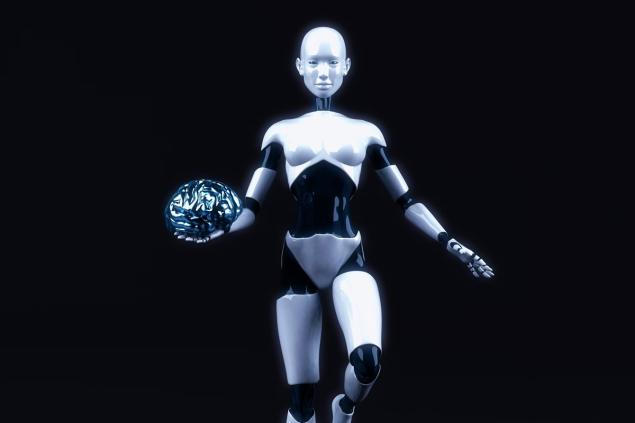
To see a miracle, you do not need to go far. Let’s go back to the topic of social networks and their search for a single photo. Such software services have been available for a long time, but these days have reached a new level. Most of them were invented and used by English-speaking audiences. Like PimEyes.
PimEyes was invented on the basis of artificial intelligence. At the moment it is the most advanced and most accurate determinant of photography. In Eastern Europe, it only works with VPNs. The service, of course, is not free: you are given 10 attempts to try, but you will have to pay for subsequent use. By the way, maps from post-Soviet countries will not work, so you can breathe out calmly.

However, this service is characterized by phenomenal accuracy. It's not just the photos that the person posted. But also images of him that other people have ever posted online. It also provides links to the page where this photo is published. From there you can find out more information about a person, not just what he writes on his page.
This is how TimEye works. It is free, but not so accurate and can provide images of similar people. But do not think that there are no suitable services for our person. For example, Search4Faces was created specifically for image search in the CIS countries. He searches for photos on social networks such as Odnoklassniki and VKontakte.
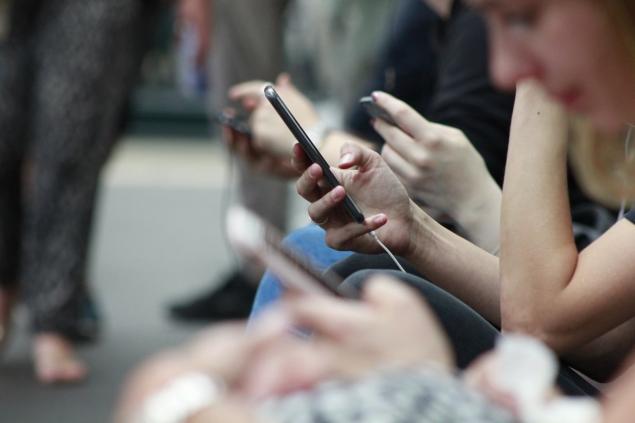
I checked the work of the Search4Faces website on the photo of Alla Pugacheva, still a public person. The site highlighted the pages of all the people who posted her photos or put her on an avatar, as well as very similar to the diva people. But the page of Alla did not show. Probably because she has a major Instagram and Facebook account. At the same time, on the page of the site itself, they write that their database contains more than a billion people.
But if you think that you need some special service to search for photos, it is not. In fact, photo search is built into all browsers. For example, in the browser Google, Opera and even Yandex. And if you want even more careful selection, you can always use a search by image in Pinterest.
At the moment, there are no rules on the ethics of maintaining pages. Everyone has them, even children at a very young age. Be careful, the internet doesn’t forget anything.

I want to return to the topic of personal happiness and the words of my mother that she loves silence. In the comments, under the words of priest Peter Guryanov, the following answers are also found:
“The cemetery loves silence, and happiness loves travel, friends, delicious food and to be shared. Because when you share happiness, it only increases.”
And I can't help but agree that it's really -- happiness gets better when you share it. When there are people who can truly be happy for you. Envious people will always be enough, they do not even have to tell. It is necessary to make an amendment that the society that developed under the USSR was not used to advertise its personal life. It wasn't accepted then.
But some people are increasingly treating social media as personal diaries. You can easily determine their daily routine, the places in which they most often go, as well as loved ones. For detractors, the popularity of social media plays into the hands - you don't even have to search long!

I personally believe that an honest person has nothing to hide. I respect the choice of my mother, but I am not afraid to share some details. However, everyone needs to know the measure. When posting something on the Internet, remember: this information can be available not only to your subscribers. Detractors and scammers are always enough, and these days they have more tools for manipulation. Do you think social media is good or bad? Did you know about the face search?

This is how you take a picture of a person on the street, and access to the data is ready. These days, even an amateur can easily find all the necessary information, you do not need to be a 007 agent. Name, age, where he lives, what he is fond of and what he worries about. What else can you learn from social media? Anything. Because now it's customary to put everything on display. This was interestingly expressed by priest Peter Guryanov. You will find his humble opinion on this subject below. And some interesting facts about the dangers of the latest technologies that open up access to data.
How does a search for a social network on a face photo not to say that the Church is against the Internet. Even the pope has an Instagram page. There is nothing personal about Bishop Francis. This is the basic message of the church: everything personal must remain at the door. And this is what our domestic priest Peter Guryanov thinks about it.
A truly happy person will never be naked in front of others and show off their family life. Why would you do that? Just to make someone else happy or jealous. But if a person is really happy, he does not care about the opinion of others - are they our judges? Unfortunately, the pursuit of comments and likes these days has become a real addiction. People do this to please their pride, and pride is a sin. Never share details of your family life, especially on social media.

Unsplash: It’s hard to disagree that we really want to like it on social media. We choose the most successful photos, edit them, remove even pimples and wrinkles. God forbid, someone will notice a hump on his nose or a mess in the closet. People on social media are trying to seem much better than they really are. This is probably our human nature, there is nothing we can do about it. But psychologists have already begun to sound the alarm.
Recent research in the field of our psyche shows that regular spending time on social networks increases the risk of developing depression. Simply put, browsing other people's pages, we slowly but surely plunge into despondency. Why is that?
The world on the Internet is not at all like in reality. People brag about only the best: new cars, hairstyles, manicure, clothes, travel, going to the restaurant. The average person, when viewing such pages, gets the impression that he is inferior to others in everything. Someone once in a lifetime went on vacation to another country! But we already think that there are some rich people around, because one post is more beautiful than another. The Internet has become a likes-gathering machine.

But we don’t live on the Internet, we live in reality. And we all have problems, bad days and tragedies. But in social networks, almost no one shares deeply personal problems, everyone tries to seem happy. Sometimes you go to the news feed on one of your bad days and it seems like everyone else is happy except you. By comparing ourselves to others (with fake others, and with beautiful pictures on display), we plunge into the abyss of despair. But that's not the worst.
It gives the impression that technology has already gone much beyond our understanding. Over the past decade, the field of IT has changed so much that it surpassed all others. 10 years ago, no one really knew what it was, and now everyone wants to get into it. Artificial intelligence alone is worth what: it draws pictures and diagnoses, and, they say, will soon replace middle-level specialists.

To see a miracle, you do not need to go far. Let’s go back to the topic of social networks and their search for a single photo. Such software services have been available for a long time, but these days have reached a new level. Most of them were invented and used by English-speaking audiences. Like PimEyes.
PimEyes was invented on the basis of artificial intelligence. At the moment it is the most advanced and most accurate determinant of photography. In Eastern Europe, it only works with VPNs. The service, of course, is not free: you are given 10 attempts to try, but you will have to pay for subsequent use. By the way, maps from post-Soviet countries will not work, so you can breathe out calmly.

However, this service is characterized by phenomenal accuracy. It's not just the photos that the person posted. But also images of him that other people have ever posted online. It also provides links to the page where this photo is published. From there you can find out more information about a person, not just what he writes on his page.
This is how TimEye works. It is free, but not so accurate and can provide images of similar people. But do not think that there are no suitable services for our person. For example, Search4Faces was created specifically for image search in the CIS countries. He searches for photos on social networks such as Odnoklassniki and VKontakte.

I checked the work of the Search4Faces website on the photo of Alla Pugacheva, still a public person. The site highlighted the pages of all the people who posted her photos or put her on an avatar, as well as very similar to the diva people. But the page of Alla did not show. Probably because she has a major Instagram and Facebook account. At the same time, on the page of the site itself, they write that their database contains more than a billion people.
But if you think that you need some special service to search for photos, it is not. In fact, photo search is built into all browsers. For example, in the browser Google, Opera and even Yandex. And if you want even more careful selection, you can always use a search by image in Pinterest.
At the moment, there are no rules on the ethics of maintaining pages. Everyone has them, even children at a very young age. Be careful, the internet doesn’t forget anything.

I want to return to the topic of personal happiness and the words of my mother that she loves silence. In the comments, under the words of priest Peter Guryanov, the following answers are also found:
“The cemetery loves silence, and happiness loves travel, friends, delicious food and to be shared. Because when you share happiness, it only increases.”
And I can't help but agree that it's really -- happiness gets better when you share it. When there are people who can truly be happy for you. Envious people will always be enough, they do not even have to tell. It is necessary to make an amendment that the society that developed under the USSR was not used to advertise its personal life. It wasn't accepted then.
But some people are increasingly treating social media as personal diaries. You can easily determine their daily routine, the places in which they most often go, as well as loved ones. For detractors, the popularity of social media plays into the hands - you don't even have to search long!

I personally believe that an honest person has nothing to hide. I respect the choice of my mother, but I am not afraid to share some details. However, everyone needs to know the measure. When posting something on the Internet, remember: this information can be available not only to your subscribers. Detractors and scammers are always enough, and these days they have more tools for manipulation. Do you think social media is good or bad? Did you know about the face search?
Top countries for those who decided to change their place of residence in 2024
What could be found in Soviet yards and why for children these finds were worth their weight in gold

